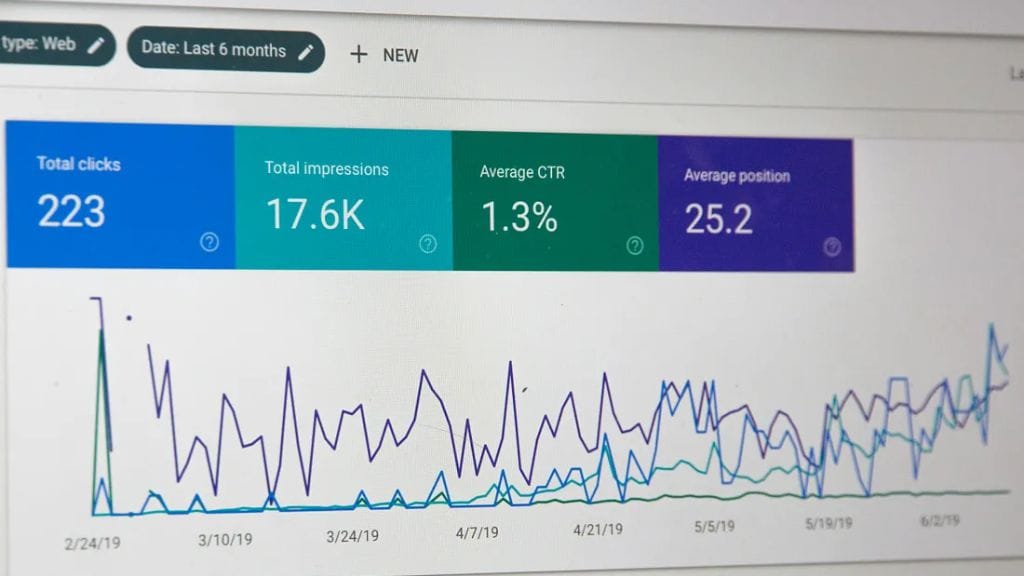AI in Keyword Research
AI-Powered Keyword Research: In the digital age, keyword research is a fundamental aspect of search engine optimization (SEO). It involves identifying the terms and phrases that users enter into search engines, which can help businesses and content creators tailor their content to meet audience needs. With the rise of artificial intelligence (AI), particularly generative AI, the process of keyword research has evolved significantly. This blog explores how generative AI can enhance keyword research, making it more efficient and effective for students and professionals alike.
The Importance of Keyword Research in SEO
Keyword research is crucial for several reasons:
- Understanding Audience Needs: It helps identify what potential customers are searching for, allowing content creators to address their interests and questions.
- Improving Visibility: By optimizing content with relevant keywords, websites can rank higher in search engine results pages (SERPs), increasing visibility and traffic.
- Driving Targeted Traffic: Effective keyword targeting attracts users who are more likely to convert, whether that means making a purchase, signing up for a newsletter, or engaging with content.
What Is Generative AI?
Generative AI refers to algorithms that can create new content based on existing data. Unlike traditional AI, which typically analyzes data to provide insights, generative AI can produce text, images, and other media. In the context of keyword research, generative AI can generate keyword ideas, suggest related phrases, and even create content outlines based on identified keywords.
The Role of AI in SEO
Why Traditional Keyword Research Methods Fall Short
Traditional keyword research methods often rely on manual processes and static datasets. While tools like Google Keyword Planner provide valuable insights, they may not capture the dynamic nature of user search behavior. Additionally, these methods can be time-consuming and may overlook emerging trends or long-tail keywords that could be beneficial for SEO strategies.
How AI Enhances the Keyword Research Process
AI enhances keyword research by:
- Analyzing Large Datasets: AI tools can process vast amounts of data quickly, identifying trends and patterns that humans might miss.
- Generating Contextual Keywords: Generative AI can suggest keywords based on context rather than just frequency, leading to more relevant keyword choices.
- Real-Time Insights: Many AI tools offer real-time data analysis, allowing marketers to adapt their strategies based on current search trends.
Generative AI Tools for Keyword Research
Top AI Tools for Finding Keyword Opportunities
Several generative AI tools stand out for their capabilities in keyword research:
Gemini, Claude, and ChatGPT for Keyword Research
These conversational AI models can assist in brainstorming keyword ideas. By inputting specific queries or topics, users can receive a list of relevant keywords and phrases. For example:
- Gemini: Known for its advanced natural language processing capabilities.
- Claude: Offers contextual understanding that aids in generating targeted keywords.
- ChatGPT: Can engage in dialogue to refine keyword suggestions based on user feedback.
Google Bard for Semantic Analysis
Google Bard excels at semantic analysis by understanding the meaning behind words. This tool helps identify synonyms and related terms that may not be immediately obvious but are valuable for comprehensive keyword targeting.
SEMrush’s AI Features
SEMrush offers various AI-powered features such as:
- Keyword Magic Tool: Generates a large list of related keywords based on a seed keyword.
- Topic Research Tool: Provides insights into popular topics related to your keywords, helping you create relevant content.
Finding Keyword Gaps Using Generative AI
Identifying Gaps in Competitor Content
One of the most powerful applications of generative AI is its ability to identify gaps in competitor content. By analyzing what competitors rank for but you do not, you can uncover valuable opportunities for new content creation.
Tools and Techniques for Gap Analysis
To conduct a gap analysis:
- Use tools like SEMrush or Ahrefs to compare your website with competitors.
- Identify keywords where competitors have high rankings but your site does not appear.
- Create targeted content around these keywords to fill the gaps.
Leveraging Intent-Driven Keywords with AI
Understanding User Search Intent
User search intent refers to the purpose behind a search query. It can be categorized into three main types:
- Informational Intent: Users seek information (e.g., “What is SEO?”).
- Navigational Intent: Users look for a specific website or page (e.g., “Facebook login”).
- Transactional Intent: Users intend to make a purchase (e.g., “buy running shoes online”).
Mapping Keywords to Search Intent
AI tools can help map keywords to their respective intents by analyzing search patterns and user behavior. This ensures that your content aligns with what users are genuinely looking for.
Examples of AI-Powered Keyword Research
Example 1: A Local Business Strategy
Consider a local coffee shop looking to increase its online presence. By using generative AI tools like ChatGPT or SEMrush’s Keyword Magic Tool, the business could discover long-tail keywords such as “best coffee shop near me” or “organic coffee beans delivery.” This targeted approach helps attract local customers searching for specific offerings.
Example 2: E-commerce Product Keyword Discovery
An e-commerce store selling fitness equipment could utilize Google Bard to analyze semantic relationships between terms like “home gym equipment” and “best weights for home workouts.” By understanding these relationships, the store could optimize product descriptions and blog posts around these keywords to improve visibility.
Best Practices for AI-Driven Keyword Research
Combining Human Expertise with AI Insights
While generative AI offers powerful insights, combining these with human expertise is essential. Marketers should interpret data contextually and apply their knowledge of industry trends and audience behavior.
Regularly Updating Your Keyword List
The digital landscape is constantly changing. Regularly updating your keyword list ensures you stay relevant and competitive. Use generative AI tools to refresh your strategy periodically based on new trends and user behavior shifts.
Conclusion
Incorporating generative AI into your keyword research strategy offers numerous benefits—enhanced efficiency, deeper insights into user intent, and the ability to discover untapped opportunities. As students exploring SEO strategies or professionals seeking to refine their approach, experimenting with these advanced tools will undoubtedly yield positive results. Start leveraging generative AI today! Explore various tools available and integrate them into your keyword research process. By doing so, you’ll unlock new avenues for growth and visibility in an increasingly competitive digital landscape. Remember, Ranks Digital Media, the best SEO company in Delhi NCR, India, can help you leverage AI tools to refine your SEO strategy and achieve remarkable results.
FAQs
How does AI help in keyword research?
AI assists by analyzing large datasets quickly, generating contextual keywords based on user intent, and providing real-time insights into search trends.
Which are the best AI tools for keyword discovery?
Top tools include SEMrush’s Keyword Magic Tool, Google Bard for semantic analysis, ChatGPT for brainstorming ideas, and Ahrefs for competitive analysis.
Can AI completely replace manual keyword research?
While AI enhances keyword research significantly, it should complement human expertise rather than replace it entirely; human insight remains crucial in interpreting data effectively.
What are keyword gaps, and why are they important?
Keyword gaps are opportunities where competitors rank for certain keywords while you do not. Identifying these gaps allows you to create targeted content that can improve your rankings.
How does Ranks Digital Media use AI for SEO?
Ranks Digital Media utilizes advanced generative AI tools alongside traditional methods to enhance keyword research processes, ensuring clients achieve optimal visibility in search engine results.






